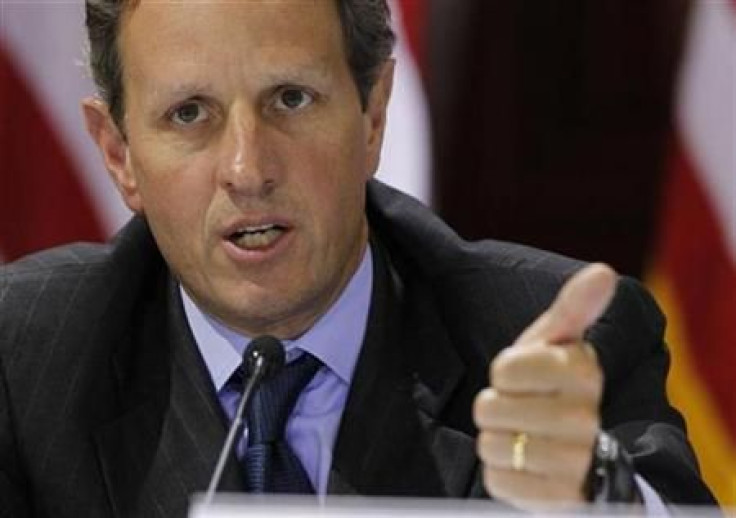Tim Geithner: "I Must Have Sounded Like A Bank Lobbyist" When Opposing Financial Reforms

In his new book, "Stress Test," former Treasury Secretary Tim Geithner defends the decisions he made during the financial crisis, takes on accusations that he was too close to Wall Street, and even admits that he sounded like a bank lobbyist while opposing derivatives reform proposals in the late-'90s.
Geithner opposed proposals to reform the derivatives market during the Clinton administration, which would have regulated these privately traded deals not posed on public exchanges. In the wake of the financial crisis, many have argued that such reforms could have helped prevent some of the worst excesses on Wall Street. Some of Geithner's arguments were so friendly to the derivatives industry that his longtime mentor, then-Treasury Secretary Robert Rubin, called him out on them. The revelation is stunning in that Rubin, by pushing to repeal the Glass–Steagall Act that had separated commercial and investment banking for six decades, has himself been characterized as too friendly to Wall Street during his tenure.
When Geithner once argued that reforming the over-the-counter market would just drive it overseas, he admits that "I must have sounded like a bank lobbyist, and Rubin shot me a derisive look. 'That's the weakest argument you can ever make against reform,' he said."
In explaining his opposition (he concedes that his role was "not a distinguished one"), Geithner mocks Brooksley Born, the then-chairwoman of the Commodity Futures Trading Commission, who was the main proponent of derivatives reform.
He writes that the popular narrative of Born's crusade "has been boiled down to a morality play, pitting a heroic Born against nefarious financial Goliaths," but that the truth was much more nuanced. Dismissing the substance of her argument that such complex financial instruments posed a threat to the stability of the financial system, Geithner boils it down to a turf war between the Federal Reserve, banks and exchanges.
He mocks her note-taking style by recalling one meeting at CFTC when she pulled out a yellow pad and started "reading from dozens of handwritten notes about our messy securities laws. She clearly felt strongly about the cause of reform, but her proposals for reform were mostly impenetrable."
Born did not return a request for comment.
© Copyright IBTimes 2024. All rights reserved.











